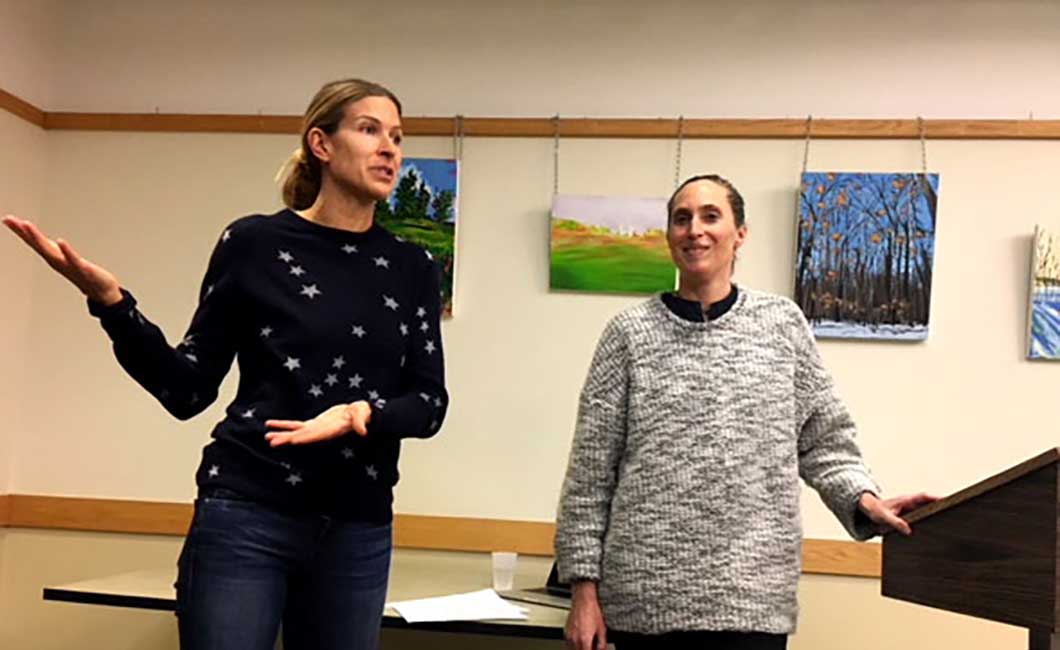Rachel Kimel and Deena DelZotto, co-founders of the Bowery Project, love working with plants.
They started the non-profit organization because they were especially interested in growing food and educating the public about healthy eating. The Evergreen Brick Works and greenhouse, which specializes in “sustainable practices,” was one of the spaces that inspired them.
“‘Bowery’ actually means ‘farm’ in Dutch. So we wanted to come up with a name not too simplistic as ‘green in the city’ or ‘green spaces downtown,’” Kimel said at a meeting at the Leaside Public Library in East York on Feb. 8.
“In New York, the Bowery was the road that led from the settlements to the farms, hence why we named our project after the New York City street.“
The Bowery Project would not be what it is today without milk crates. All of its produce is grown in “re-purposed milk crates that sit above the land,” its website explains.
The crates are light and mobile, making it easy for anyone to lift. “A farm of up to 5,000 crates can be disassembled and relocated within 24 hours,” which aligns with the mission to “create opportunities for urban agriculture through the temporary use of vacant lots.”
Environmental sustainability is important to DelZotto, a mother of three, who explained the importance of thinking twice before eating unhealthy meals.
“I think that once you have a child, you realize that everything that goes into their mouths becomes a part of their body,” she said. “I think you become more aware of the process — because you see how it grows, maybe you will eat it and want to taste it.”
The Bowery Project has several sources of funding — The Ontario Trillium Foundation, fundraising events, and chefs among them — and benefits many diverse communities, including a Toronto Community Housing neighbourhood for single mothers for which Kimel and DelZotto’s organization helps provide three healthy meals a day.
The founders of the project are looking for summer students and volunteers to continue educating the public and turning more vacant lots into farms. If you’re interested, you can find more information at www.boweryproject.ca/what-you-can-do.

